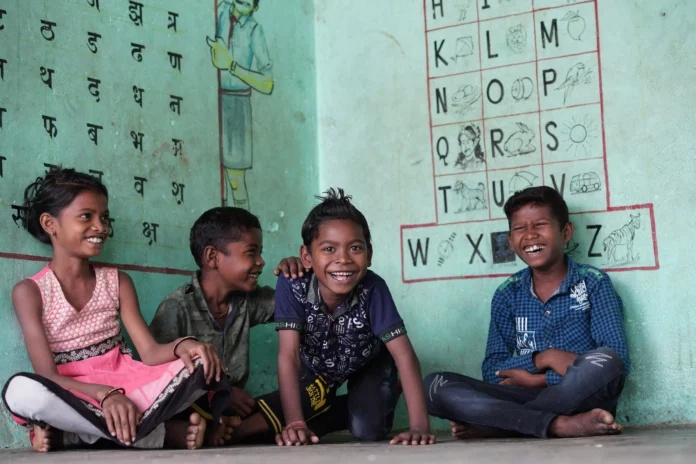As India stands on the cusp of transformative economic and social progress, exemplified by the ₹1.5 lakh crore gold discovery in Jabalpur and the push for self-reliance under Atmanirbhar Bharat, the need for visionary leaders has never been more critical. Education serves as the cornerstone for cultivating these leaders, equipping them with the knowledge, skills, and ethical grounding to navigate complex challenges in a rapidly evolving global landscape. From fostering critical thinking to promoting emotional intelligence and adaptability, education shapes individuals who can drive innovation, inclusivity, and sustainable growth. As of August 18, 2025, with India celebrating its 79th Independence Day and addressing global pressures like U.S. tariffs, this article explores why education is pivotal to building better leaders, its impact on India’s ambitions, and the strategies needed to align learning with leadership demands.
The Role of Education in Leadership Development
Education is more than the acquisition of knowledge; it is a transformative process that molds individuals into leaders capable of steering organizations, communities, and nations toward progress. In India, where economic opportunities like the Jabalpur gold mine and entrepreneurial ventures like Ananya Birla’s Birla Cosmetics are reshaping the landscape, effective leadership is essential. Education contributes to leadership in several key ways:
1. Fostering Critical Thinking and Problem-Solving
Leadership requires the ability to analyze complex situations and make informed decisions. Education, particularly in STEM (Science, Technology, Engineering, and Mathematics) and liberal arts, cultivates critical thinking by exposing students to diverse perspectives and analytical frameworks. For instance, the mining-tech rush spurred by Jabalpur’s gold discovery demands leaders who can optimize production rates using tools like Taylor’s formula, balancing economic returns with environmental sustainability. Educational programs that emphasize data analysis, as seen in India’s National Education Policy (NEP) 2020, prepare leaders to tackle such challenges.
2. Building Emotional Intelligence
Effective leaders inspire and empathize, qualities rooted in emotional intelligence (EQ). Education systems that incorporate soft skills training—through group projects, leadership workshops, and community engagement—help develop EQ. The story of the 27-year-old woman earning ₹1.7 lakh monthly, yet feeling financially trapped, underscores the need for leaders who can manage stress and balance personal and professional responsibilities. Educational initiatives, like those championed by Ananya Birla’s mental health advocacy, can instill resilience and empathy, enabling leaders to foster inclusive workplaces.
3. Promoting Ethical Leadership
In a world marked by geopolitical tensions, such as Germany’s proposed Trump-Putin-Zelensky summit, ethical leadership is paramount. Education instills values of integrity and accountability through courses on ethics, governance, and corporate social responsibility. In India, where cultural expectations like filial duty shape financial decisions, leaders must navigate moral dilemmas with clarity. Programs at institutions like IIM Ahmedabad, which emphasize ethical decision-making, prepare leaders to uphold integrity in high-stakes environments.
4. Encouraging Adaptability and Innovation
The rapid pace of technological and economic change demands adaptable leaders. Education in emerging fields like AI, IoT, and sustainable technologies equips leaders to innovate. For example, the integration of drone-based surveying and IoT safety systems in Jabalpur’s mining operations highlights the need for tech-savvy leaders. India’s Skill India Mission and CBSE’s updated Legal Studies syllabus (revised in 2025) emphasize digital literacy and adaptability, ensuring leaders can respond to disruptions like U.S. tariffs impacting $87 billion in exports.
India’s Leadership Needs in 2025
India’s current economic and geopolitical context underscores the urgency of developing capable leaders:
-
Economic Transformation: The Jabalpur gold discovery, valued at ₹1.5 lakh crore, could reduce India’s $60–70 billion gold import bill, requiring leaders to optimize production and manage environmental impacts. Similarly, ventures like Birla Cosmetics demand leaders who can disrupt competitive markets while aligning with Atmanirbhar Bharat’s self-reliance goals.
-
Geopolitical Challenges: U.S. tariffs and global trade tensions, akin to those affecting Shandong’s steel industry, necessitate leaders skilled in diplomacy and market diversification. Germany’s trilateral summit proposal highlights the need for strategic thinkers who can navigate international relations.
-
Social Inclusion: With India’s diverse population, leaders must foster inclusivity. The Har Ghar Tiranga campaign, led by Shri Vikram Dev Dutt, reflects the cultural unity needed in leadership, which education can cultivate through interdisciplinary learning.
Strategies to Align Education with Leadership Development
To build better leaders, India must align its education system with these needs:
-
Interdisciplinary Curricula: Integrate STEM, humanities, and business studies to develop well-rounded leaders. For example, combining mining engineering with environmental science can produce leaders for sustainable projects like Jabalpur.
-
Skill Development Programs: Expand initiatives like the National Skill Development Mission to include leadership training, focusing on negotiation, crisis management, and innovation. This can support sectors like mining-tech and beauty, where startups are thriving.
-
Technology Integration: Incorporate AI, data analytics, and digital literacy into curricula, preparing leaders for tech-driven industries. Partnerships with startups like Skylark Drones can provide practical exposure.
-
Global Exposure: Encourage international exchange programs to expose students to global leadership models, aiding India’s response to challenges like U.S. tariffs through FTAs with the UK and UAE.
-
Ethical and Cultural Training: Embed ethics and cultural sensitivity in education, as seen in CBSE’s Legal Studies updates, to produce leaders who respect India’s heritage while driving progress.
Challenges and Opportunities
Challenges
-
Access to Quality Education: Despite NEP 2020, disparities in rural-urban education access persist, limiting leadership development in underserved areas.
-
Cultural Pressures: As seen in the ₹1.7 lakh earner’s story, familial obligations can distract young professionals from pursuing leadership-focused education.
-
Resource Constraints: Scaling interdisciplinary programs requires significant investment, challenging in a budget-constrained environment.
-
Global Competition: Leaders must compete in a globalized economy, requiring education systems to match international standards.
Opportunities
-
Economic Growth: Educated leaders can maximize the potential of projects like Jabalpur’s gold mine, creating jobs and reducing import dependency.
-
Tech Ecosystem: The mining-tech and beauty-tech booms offer platforms for leadership innovation, supported by startups and government incentives.
-
Policy Support: Initiatives like Atmanirbhar Bharat and SEBI’s investor education programs can fund leadership training, fostering financial and strategic acumen.
-
Cultural Unity: Events like Har Ghar Tiranga inspire leaders to unite diverse communities, amplifying India’s global influence.



